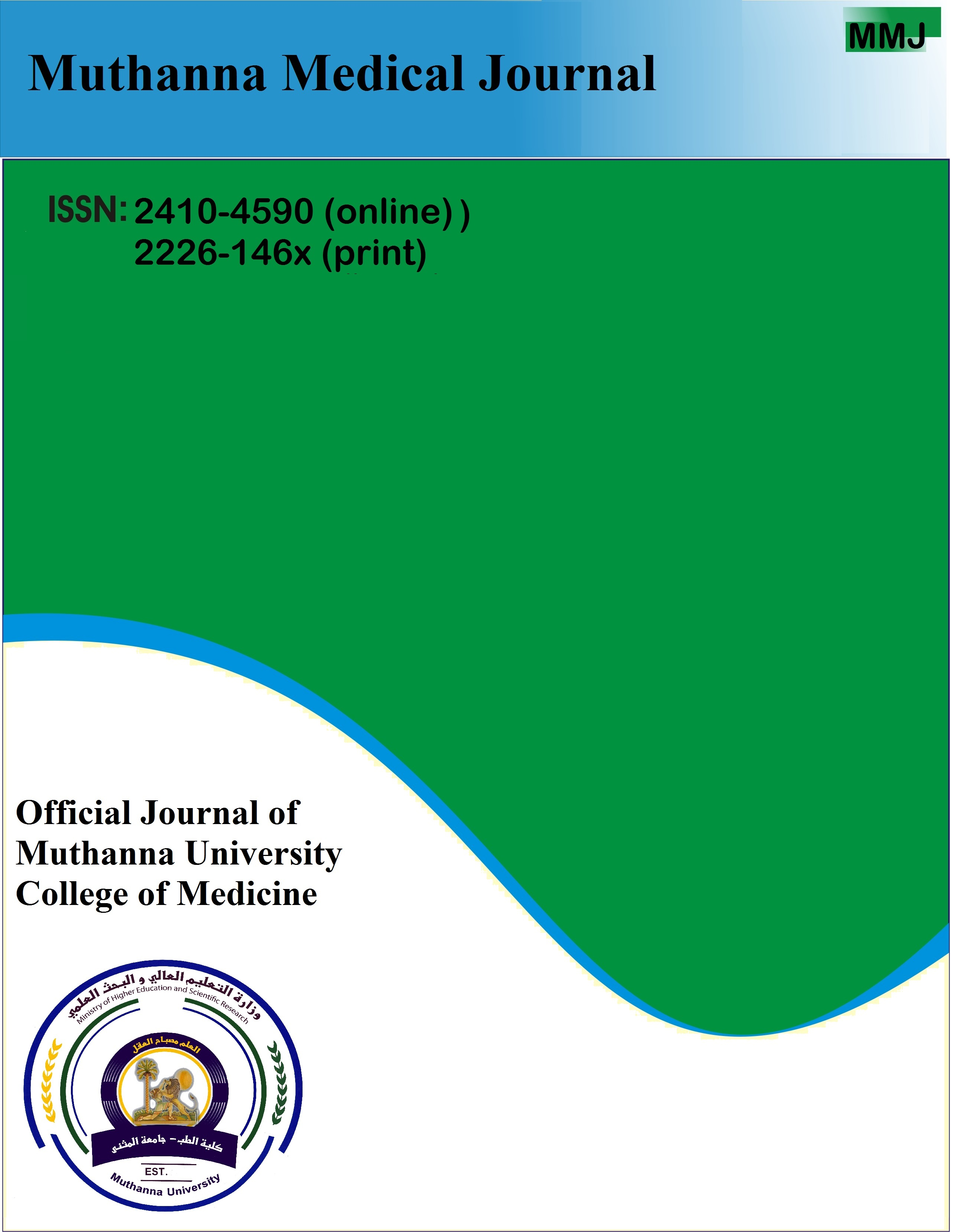Muthanna Medical Journal
Volume 9, Issue 2, 2022 Page 68-76
http://dx.doi.org/10.52113/1/1/2022-68-76
Abuagla M. Dafalla¹, Leena A. Dafalla¹, Amira S. Khalafalla¹, Yousif A. Mohammed ², Khaled G.Salih ³, Hani M. Abdalla 4,Rihab M. Haj Altom 5, GadAllah Modawe 6*
Correspondence author: gadobio77@hotmail.com
¹ Department of Clinical Chemistry, Faculty of Medical Laboratory Sciences, University of Gezira, WadMedani, Sudan.
2. National Cancer Institute, University of Gezira, WadMedani, Sudan
3. Department of Medical Laboratories, Private Health Service, Sudan
4. Department of Medical Laboratories, Health Services Administration, University of Gezira, WadMedani, Sudan
5. Department of Medical Laboratories, Pediatric Hospital Alhasahisa City, Sudan
6. Department of Biochemistry, Faculty of Medicine and Health Sciences, Omdurman Islamic University, Omdurman, Sudan.
Received 11 July 2022, Accepted 30 August 2022, Available online 20 September 2022.
Copyright © 2022 GM. This is article distributed under the terms of the Creative Commons Attribution License http://creativecommons.org/licenses/by/4.0), which permits unrestricted use, distribution, and reproduction in any medium, provided the original work is properly cited.
Abstract
Acute myocardial infarction (AMI) is the most serious clinical manifestation of coronary artery disease leading to irreversible heart necrosis due to prolonged ischemia. From being an illness prevalent predominantly in developed countries, AMI is now becoming increasingly more common in developing countries. The study aims to estimate renal function test and serum electrolytes in acute myocardial infarction patients to reflect the effect of AMI on renal function. Case control study conducted at Cardiac center, Wad Medani, Gezira State, from September 2017 to February 2021. A total of three hundred and forty blood samples were collected, one hundred and seventy from acute myocardial infarction patient and one hundred and seventy from health control group. Data were collected by questionnaire and analyzed using SPSS version (21). A total 170 AMI patients with chest pain (100%), positive Troponin I (100%) and had not pervious history for renal disease (100%) were enrolled in this study, the majority of whom are male (67%), their age is over 60 (51%), and the majority of them have chronic diseases such as hypertension (68.2%) and diabetes (64%). The levels of blood urea, serum creatinine and urea / creatinine ratio were significantly increased in AMI patients when compared with control group with P.value (0.000), while the serum Sodium concentration was significantly decreased in AMI patients with P.value (0.005). On other hand, the level of serum Potassium and Sodium / Potassium ratio were not significant deferent between AMI patients and Non AMI healthy individuals. Also urea had significant positive moderate correlation with Creatinine, potassium and urea / Creatinine ratio, whereas it had a significant negative weak correlation with sodium. Inconclusion acute myocardial Infarction was affected on renal functions which lead to decrease renal clearance for body metabolism waste and decrease the ability of renal to reabsorbed sodium.
Keywords: Renal function test, Serum Electrolytes, Sudanese, Pre-renal disease, Creatinine, Acute myocardial function